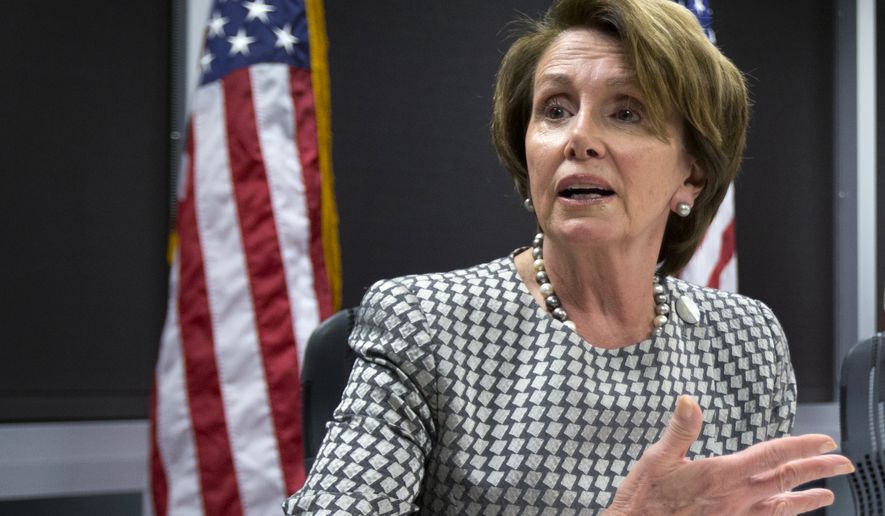The success of ballot measures that raised the minimum wage in four red-leaning states provided one of the only bright spots for Democrats in an otherwise bleak midterm election and vaulted the issue to top of the agenda for President Obama and his beleaguered party.
Members of the Congressional Progressive Caucus and their liberal allies are seizing the opportunity to press Mr. Obama to again use an executive order to increase the minimum wage for federal contract workers, this time to $15 per hour.
Unable to convince Republicans in Congress to hike the national minimum wage from $7.25 to $10.10 per hour, Mr. Obama in February used an executive order to give the same raise to federal contract workers.
The House progressives, led by Democratic Reps. Keith Ellison of Minnesota and Raul Grijalva of Arizona will join about a dozen liberal groups and labor unions Monday to urge Mr. Obama to do it again with what they’re calling “Good Jobs Executive Orders.”
They will not only demand that federal contract workers get at least a $15 per hour wage but also new guarantees of union representation in the businesses that employ them, said sources involved in the effort.
The push for executive action dovetails with the jobs agenda Mr. Obama and Capitol Hill Democrats are pushing in the wake of the election that gave Republicans complete control of Congress.
SEE ALSO: Minimum wage increases passed by voters
Sensing an opening to attack Republicans, who opposed raising the federal minimum wage even as the idea gained popularity among voters in both parties, Democrats made the issue a top post-election talking point.
Republicans have long argued that a higher minimum wage is a “job killer” because it prompts employers to eliminate entry-level and low-skill positions.
“When you raise the cost of something, you get less of it,” House Speaker John Boehner, Ohio Republican, said earlier this year. “We know from increases in the minimum wage in the past that hundreds of thousands of low-income Americans have lost their jobs.”
The day after the election, Mr. Obama quickly pointed to the success of minimum wage ballot measures in GOP-leaning Arkansas, Nebraska, Alaska and South Dakota, as he sought a new footing for his jobs agenda.
“That should give us new reason to get it done for everybody with a national increase in the minimum wage,” he said at a White House press conference. “So those are some areas where I think we’ve got some real opportunities to cooperate, and I am very eager to hear Republican ideas for what they think we can do together over the next couple of years.”
House Minority Leader Nancy Pelosi also latched on to the minimum wage issue after witnessing her party’s widespread losses that put Republicans in control of the Senate and expand the GOP majority in the House.
She touted a minimum wage hike in an open letter to House Democrats the day after the election and again in response to an encouraging jobs report two days later.
“It is time for Republicans to end their relentless distraction, dysfunction and special interest obstruction, and put the middle class first,” said the California Democrat. “Congress should act swiftly to pass common sense legislation to jumpstart the middle class and energize our economy: invest in building America, raise the minimum wage, help free our young people from the crushing weight of student debt, and unleash the full potential of women into our economy.”
The appeal of raising the minimum wage, which is set by the federal government at $7.25 unless states provide a higher one, has spread rapidly across the county in recent years.
More than half of the states — 29 states and the District of Columbia — will have minimum wages higher than the federal standard following last week’s referendum and legislation adopted this year in Maryland, Hawaii and West Virginia.
• S.A. Miller can be reached at smiller@washingtontimes.com.




Please read our comment policy before commenting.